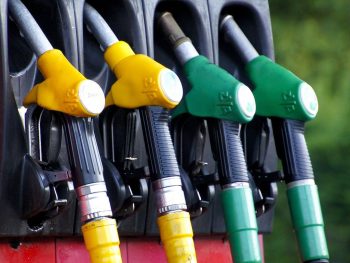Petrol retailers call for inquiry into fuel crisis as shortages continue
Petrol retailers in the UK are calling for an independent inquiry into the fuel delivery crisis, warning that shortages are still continuing in some areas.

A total of 12% of filling stations in London and the South East still have no fuel at all, while 17% have just one grade
While most of the UK has largely recovered from the mass chaos in the last fortnight – caused by both the driver shortage and panic buying – there are still issues in London and the South East.
New data from the Petrol Retailers Association (PRA) reveals that 12% of filling stations in London and the South East still have no fuel at all, while 17% have just one grade. A total of 71% of filling stations in this region have both grades, compared to 90% outside London and the South East. Tackling the shortages in the region has been more problematic due to the fact that the rest of the UK has three times the capacity at filling stations per head of population compared to London and the South East.
The PRA, which represents 65% of all UK forecourts, said the recovery is not happening quickly enough.
Chairman Brian Madderson said: “We are into our 15th day of the crisis. There needs to be an independent inquiry into the crisis, so that motorists are protected from such acute fuel shortages in the future.”
While the PRA thanked the Government for making drivers from the military available – which may in time feed through to increased supplies – it said the move to suspend competition law to allow oil firms to work together to target deliveries had not brought benefits for its members and had been a “failed experiment”.
Meetings involving information sharing are believed to have taken place between the Department for Business, Energy and Industrial Strategy (BEIS) and specialist hauliers and oil companies, enabling deliveries to go to areas where there were acute shortages.
Madderson stated: “The independent dealer network has not had access to any of the information which was supposed to have been shared. We do not know when the deliveries are arriving and we do not know how they are being prioritised.”
He also said the return to normal was being “blighted by the current inept prioritisation policy”.
“Fuel supplies are being sent to the wrong parts of the country, giving oil companies an excuse not to fulfil the spirit of their contracts with our members.”
Cited examples include the case of a tanker having to return to the depot full because it had arrived at a filling station which had just been stocked.
Madderson added: “It is now time for the Government to step back, reimpose competition law, and restore market disciplines so that ordinary business incentives drive the fuel to the filling stations which need it. The lesson for us all may be that, however well-intentioned the Government is, regrettably, officials do not have the ability nor the capacity to command and control a crisis such as this.”
While widespread HGV driver shortages were a factor in the fuel delivery crisis – exacerbated by the panic buying that ensued from mass media reports of dry pumps following leaked details of a meeting organised by the Cabinet Office – a new report from The Telegraph states that the switch to greener E10 fuel as the standard grade of fuel from September 2021 was also a major cause. It says petrol retailers were ‘emptying their tanks’ for the switchover to E10 when garages were swiftly drained by panic buying. A latest YouGov poll among the general public has found 47% of respondents – by far the largest share – said the media was responsible for the crisis.

















